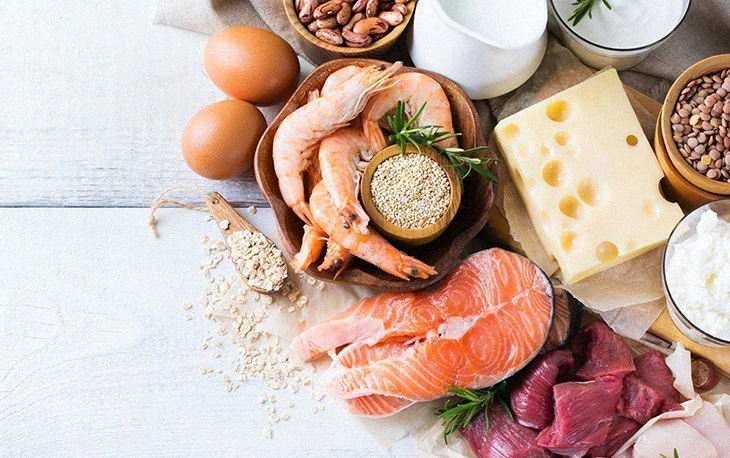
Don’t be fooled. People have known for centuries just how important proteins actually are to the body, despite most companies making you think that you had no clue.
In fact, way back when, a Swedish chemist happened to name the protein molecules the Greek word proteios, which meant “holding first place.” This alone helps us to understand just how important it must have already been back then, and how protein still manages to come up on top when it comes to important nutrients.
With the prediction of the global protein-supplements market reaching up to $21.5 billion by the year 2025, it’s obvious that proteins have become the current addiction, and will continue in this manner. No matter where you look or where you go, consuming protein is not only the “in” thing, but consumers are drawn to it because of its actual and beneficial properties.
Regardless of where you are, you can find a product you normally enjoy that has been enriched with protein that you can add to your diet. These include morning cereals, egg dishes, products with peanut butter, yogurt, and even more popular ready-to-consume items like whey-infused Protein2o water or other whey powder drinks, as well as Quest Nutrition protein chips, or even a chicken wrap protein box from Starbucks, just to name a few.
A study by Nielsen, which is a well-known worldwide data-analytics company, shared that “55 percent of U.S. households now regard protein as an important consideration when they purchase food.” Add to that the fact that the data-analytics company also saw that many products that claim to be “excellent” or “good” sources of protein on their packaging “saw an 8 percent sales uptick.”
Ironically, the study also showed that between 45 and 64 percent of buyers don’t identify food products such as beef, chicken or pork to be high in protein, despite the fact that they are actually some of the best protein sources on the market.
So now, a number of questions remain to be asked about why people are so consumed by protein, whether they need it, and whether eating too much of it can actually hurt you more than help. Here are a few important factors and points on protein to help you understand it better.
Here’s why you need it:
Protein is one of those nutrients that’s extremely fundamental when it comes to building muscles as well as keeping bones healthy and strong. Additionally, new studies have also found that protein quality may also prove to be more important the older people get.
Aside from the way protein helps with muscles and bones, it also bolsters a number of other cellular processes like transporting oxygen through the bloodstream, improving immune function, even helping with weight loss, since eating more protein makes some feel fuller due to the “release of satiety signals in the small intestine.”
All these qualities have classified it as a super-nutrient, which means that it’s incredibly important for people to add to their diets. Without protein in the body, people will have difficulty building the muscles and body they want, decreasing hunger pangs, fortifying bones, and helping improve brain function.
According to Men’s Health magazine, they’ve put “25 years of nutrition knowledge” and “talked to the smartest experts about the latest science” in order to sort through the nutrition B.S. as they said, in order to bring the most relevant and new information about protein. Below are the things they had to say:

Reasons Why You Might Not Be Eating Enough Protein:
According to protein researcher and associate professor at Purdue University’s Department of Nutrition Science, Heather Leidy, Ph.D., “That RDA means roughly 8 to 10 percent of your daily intake should be protein,” which roughly translates to .8 grams per kilogram of body weight per day. But the problem with this is that the recommended daily allowance (RDA) is only the minimum requirement, enough to prevent a person to fall into protein deficiency.
But it’s not enough for other needs like muscle gain, glycemic control, feeling full or satiety, and protein synthesis. Although most Americans’ diets show that they consume between 10 to 15 percent of protein, Dr. Leidy claims that most research shares that they should actually be eating 20 to 30 percent for better health.
What this means is that people should target eating “1.2 and 1.6 grams of protein daily for every kilogram of your target body weight.” Simplified, if you happen to weigh 185 pounds and want to lose 20 pounds, then “you should eat between 90 and 120 grams of protein per day.” But while all the extra protein won’t harm the liver, bones or kidneys, people should still be careful because higher amounts of protein can also mean more calories that can also lead to weight gain, says Leidy.
Here’s How Much Protein You Need to Eat to Gain Muscle or Lose Weight:
Every meal should have at least 30 grams of protein, regardless of whether you’re trying to gain muscle or lose weight. So if you’re a male who weighs 180-pounds, eating 100 to 130 grams of protein products in a day is one way to maintain your current weight. Some great protein choices include salmon, pork, chicken, lamb and shellfish amongst others.
Good thing there are also plant-based proteins for those that prefer to lessen the amount of “meat” options. These include tofu, quinoa, soybeans, peas, any kind of nut or bean, lentils, and others. And to make it easier to keep track, you can try downloading an app that allows you to add food choices and portions so you know exactly how much you are eating in a day.
While protein intake will also be more beneficial when a meal is well-budgeted and planned out, it doesn’t mean that you can’t get your protein fix via snacks. Just be careful to check the labels to make sure that they are either an adequate amount to fulfill your daily RDA, and that you aren’t choosing to eat something high in calories but not worth the protein content either. Sometimes, these so-called “protein” items may be considered healthy foods, but in fact they actually have a lot of hidden sugars.
Here’s What Happens When You Don’t Eat Enough Protein:
For those that don’t eat enough protein, more often than not, they won’t see the muscle that they are hoping to build, nor feel the other benefits that normally come with the right amount of protein in their systems. Some people end up snacking more, gaining weight, or suffering from a protein deficiency, which can just make matters worse. It’s always best to consult with a nutritionist or specialist to be able to figure out what the right amount of protein will be best for you depending on your body goals.



